Institutional breakthrough in the commercialization of scientific knowledge
Decree 271/2025/ND-CP creates a specific legal framework to expand the output for scientific research achievements in Hanoi to life, taking advantage of public scientific resources to promote innovation.
From knowledge aspirations to policy action
On October 15, 2025, the Government issued Decree No. 271/2025/ND-CP (hereinafter referred to as Decree 271), regulating the establishment and participation in the establishment of enterprises (enterprises), capital contribution to enterprises to commercialize the results of scientific research and technological development in Hanoi city - the only locality granted the pilot right under the Capital Law (amended).
Decree 271 is not only technical in terms of public intellectual property management, but is also considered as an "institutional push" to bring science and technology (S&T) out of the framework of the laboratory and closer to life and the market.
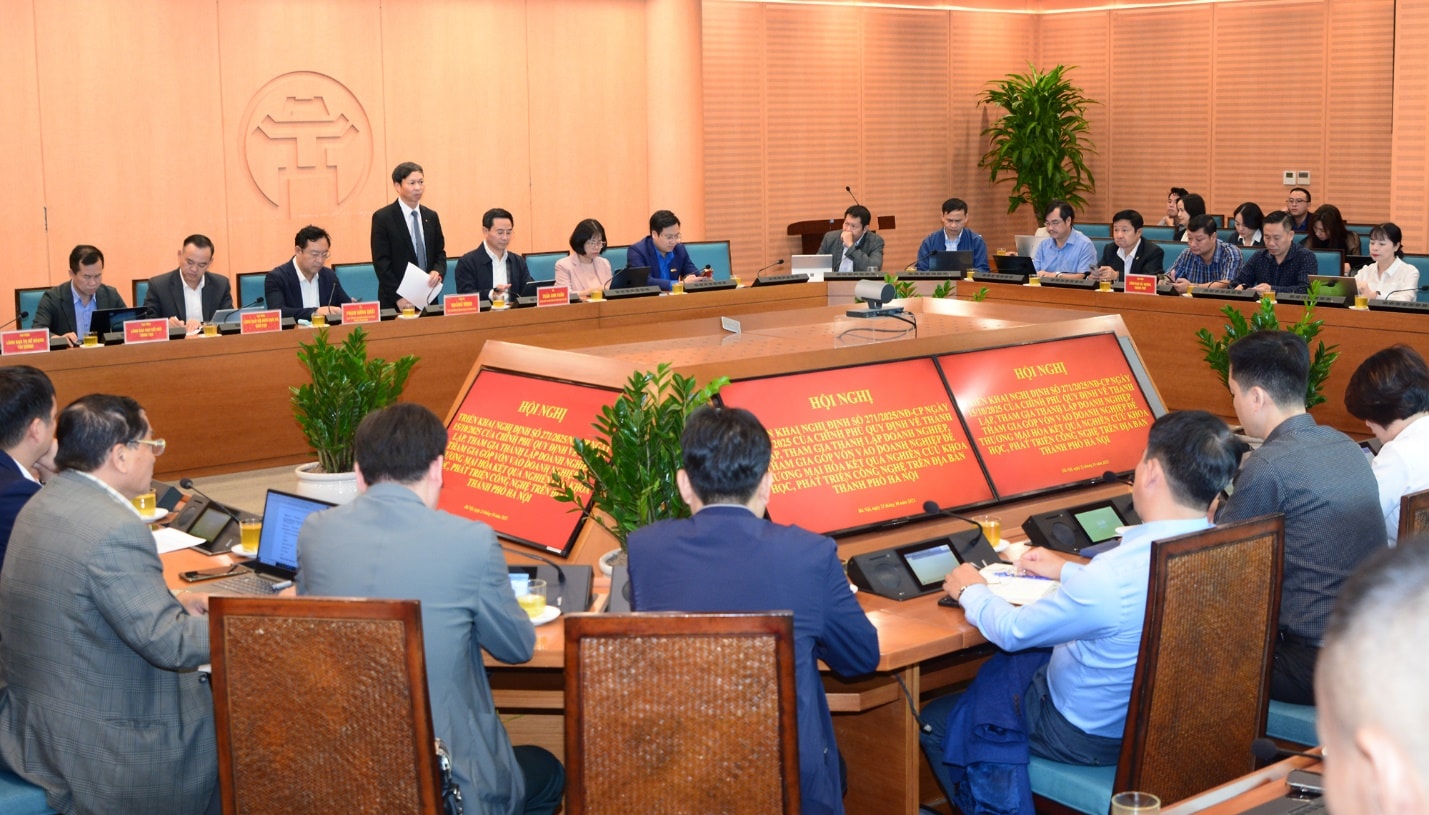
The conference to implement Decree 271 in Hanoi under the chairmanship of the Ministry of Science and Technology and the Hanoi City People's Committee, marked an important shift in policy thinking: from supporting innovative research, to knowledge commercialization, where the state - schools - enterprises share benefits and responsibilities.
Decree 271/2025/ND-CP - from legal foundation to implementation model
According to Deputy Minister of Science and Technology Hoang Minh, Decree 271 is a selective continuation after Decree 263/2025/ND-CP, but with a specific scope for the Capital. If Decree 263 shapes the autonomy mechanism for public scientific organizations, Decree 271 establishes a framework for the operation of enterprises as spin-offs, aiming to "transform scientific research results into economic value".
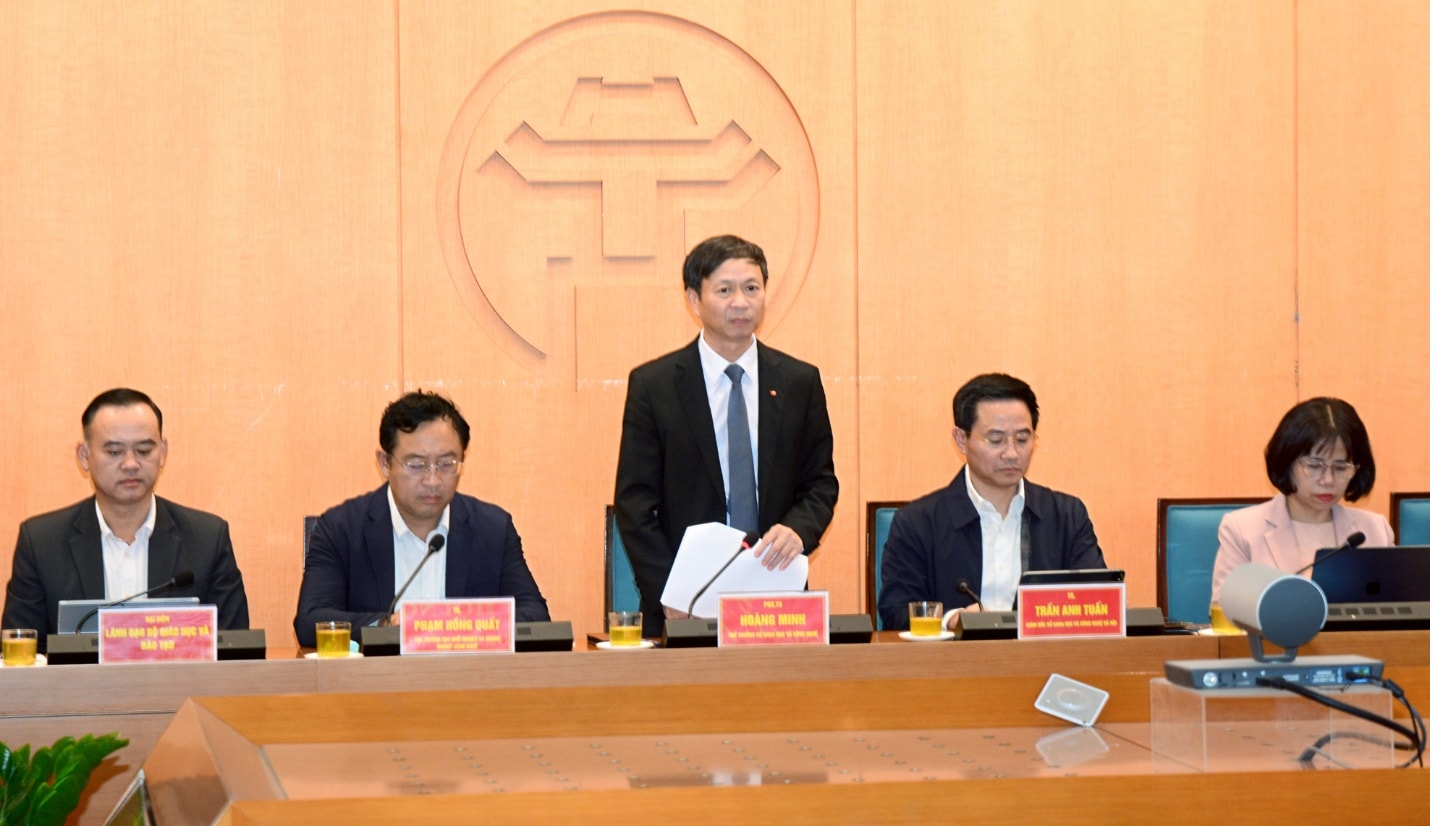
According to Mr. Director General of the National Agency for Technology Entrepreneurship and Commercialization Pham Hong Quat, a notable new point is that the Decree for the first time establishes intellectual property rights as a form of "capitalization" - allowing valuation, recognition and use in capital contribution activities to establish enterprises. This is a step beyond pure administrative management thinking, paving the way for the exploitation of intangible assets in public institutions.
Hanoi - piloting mechanisms, unleashing knowledge resources
Hanoi City was assigned the responsibility of implementing Decree 271 nationwide.
According to Director of the Department of Science and Technology Tran Anh Tuan, the city has prepared a synchronous action program, including: Establishing an interdisciplinary working group to support institutes and schools in the process of valuation, approval and capital contribution; Issue guidelines for piloting the S&T enterprise model right in the fourth quarter of 2025; Committed to dedicate 4% of the budget recurrent expenditure, equivalent to about VND 5,000 billion, to the field of science and technology and innovation - Hanoi's highest investment level ever for this field.
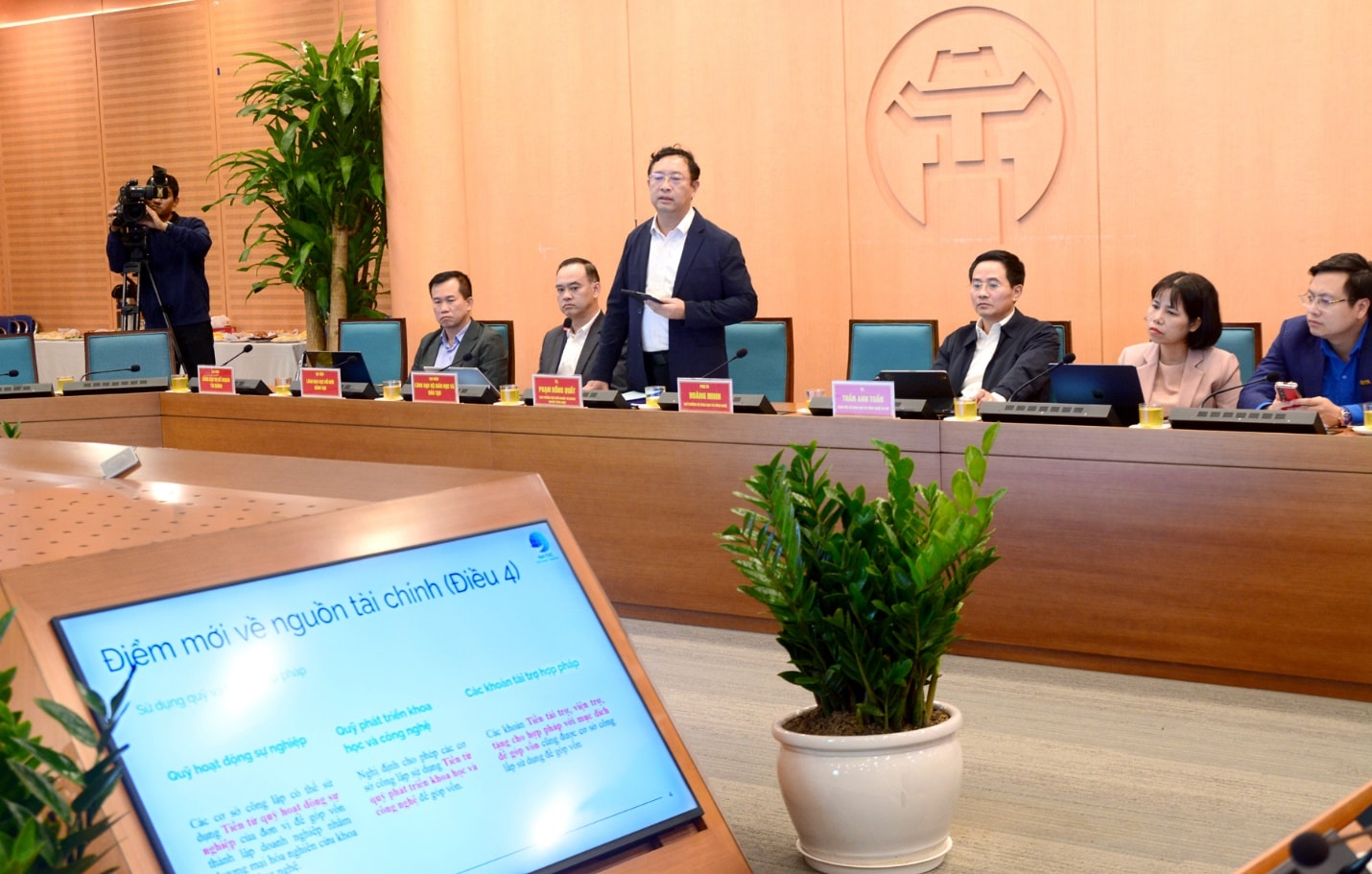
According to Director of the Hanoi Department of Science and Technology Tran Anh Tuan, Hanoi aims for a closed innovation chain: "ordering - research - reimbursement - commercialization - testing sandbox", in which Decree 271 plays the role of "institutional hinge". The city expects the first enterprises formed from universities and research institutes to be born by the end of 2025.
Linking research institutes, schools with enterprises
Attending the Conference, representatives of universities in Hanoi city welcomed Decree 271 as a long-awaited legal corridor.
Dr. Huynh Dang Chinh (Hanoi University of Science and Technology) assessed that this is an opportunity for strong research teams to directly participate in the market. The university has planned to select 4 fields and 5 research groups with clear intellectual property to pilot the spin-off model.
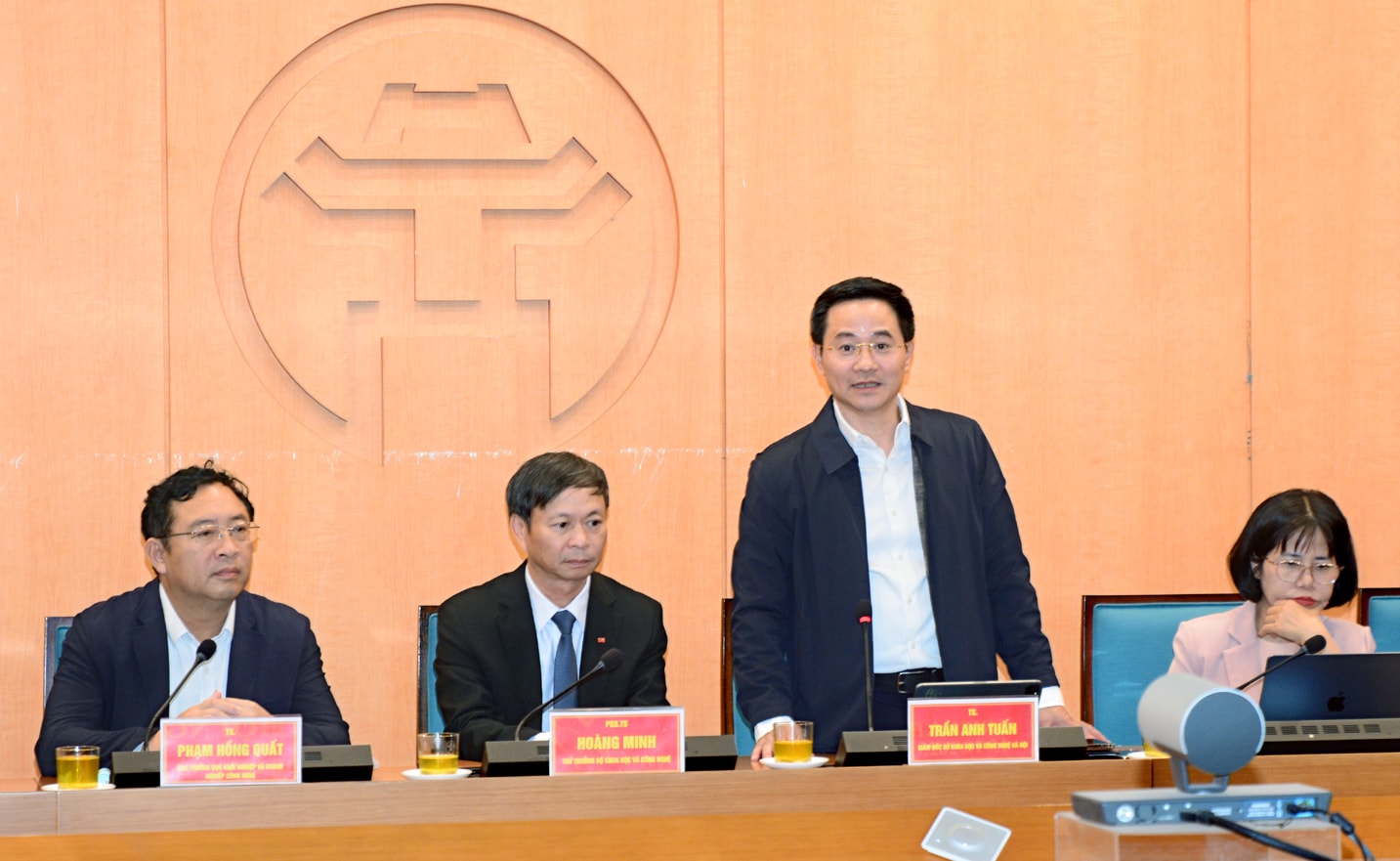
Dr. Dao Ngoc Tien (Foreign Trade University) acknowledged from the perspective that the Decree has solved 2 bottlenecks of the University, namely brand valuation and appointing officials to manage. The school will deploy very quickly because the bottlenecks have been untied.
High-quality brands and human resources are the typical intangible assets of the economic sector - they can be valued and contributed. According to Assoc. Prof. Dr. Dao Ngoc Tien, this is an "unlocking step" for social and humanities schools to also participate in commercialization in their own way, not only for engineering majors.
Representative of the vocational education sector, Vice Rector of Hanoi Hi-Tech College Nguyen Yen Thang said that every year the university's students create many innovative products with application, but lack a legal mechanism for commercialization. With Decree 271, the university is ready to become one of the first units to implement scientific and technological enterprises.
Policy breakthroughs and challenges in implementation
It can be seen that 4 institutional breakthroughs of Decree 271:
From management mechanism to incentive mechanism: Instead of limiting, Decree 271 empowers public institutions to take the initiative, considering them as creative economic subjects, allowed to use public assets for conditional capital contribution activities.
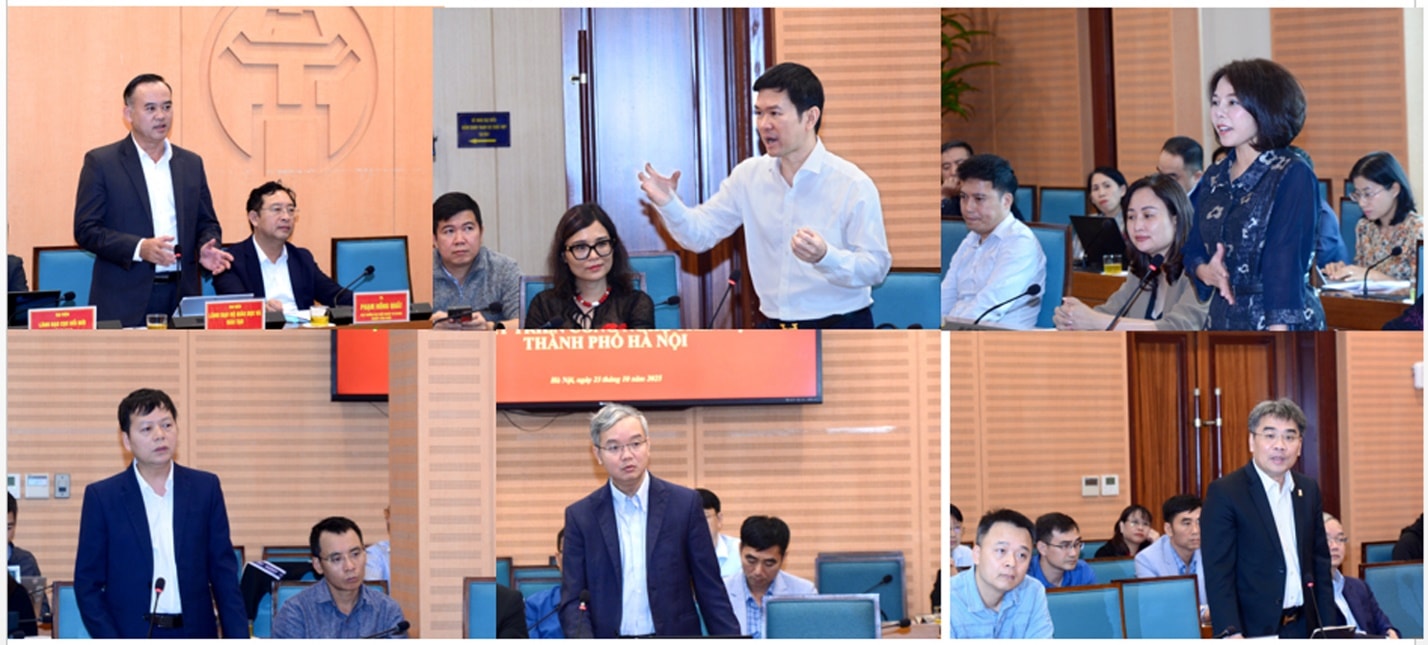
Acknowledging and institutionalizing the value of intangible assets: For the first time, intellectual property, data, brands, or software are recognized as assets that can be valued and contributed, breaking the long-standing "legal blind spot" of research activities.
Create a legal mechanism for public employees to participate in technology start-ups: Employees can invest personal capital or run spin-off enterprises, as long as they comply with regulations on public duties, opening up a generation of "scientists - entrepreneurs" in the public sector.
Flexible financial mechanism: Allows deduction of non-business funds, scientific and technological development funds, and even aid sources to participate in capital contribution - something that has never been applied in previous models.
In addition to expectations, the implementation of Decree 271 also faces many technical and managerial challenges, such as:
Intellectual property valuation: Vietnam does not have a uniform standard system for the appraisal of patent or trademark prices;
Control of conflicts of interest: It is necessary to have a clear monitoring mechanism between the personal interests of public employees and the public assets of the unit;
Spin-off business management capacity: Many institutes and schools still lack experience in operating joint stock companies or technology joint ventures.
Chairman of the Capital University Council, Mr. Nguyen Anh Tuan emphasized: The success of the Decree does not lie in the document, but in the capacity to organize the implementation. There must be a transparent valuation process, a clear profit management mechanism, and a team of officials who understand the law to avoid legal risks.
It can be said that Decree 271/2025/ND-CP is not only a guiding document for the Capital Law, but also a model of national institutional experimentation - where Hanoi plays the role of a "policy laboratory". With a budget of VND 5,000 billion invested in science and technology, and the determination to form a science and technology enterprise in the first year, Hanoi is opening a new stage: a stage in which knowledge is not only created, but also commercialized, circulated and profitable for society.
If implemented effectively, Decree 271 will become an institutional model for other large urban cities, contributing to shaping the knowledge economy - where science becomes a direct driving-force of sustainable development./.
Translated by Vietnam Journal of Science and Technology (VJST - MOST).

